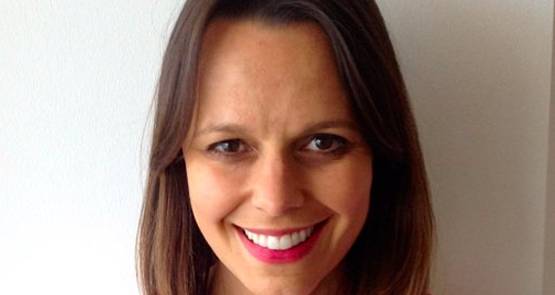
It takes a lot of preparation to interview Mia Freedman. Before she arrives, her agent sends advance word that the temperature must be set at exactly 23.5 degrees Celsius, and to have 16 two-litre bottles of lukewarm Mount Franklin lined up for her. And there are a thousand other little worries: will the floor be soft enough for her famously sensitive feet? Is the chaise longue we have prepared for her to recline on at the correct angle to the window, given her stated preference for gazing wistfully at the sea while answering questions?
When Mia arrives, she is exactly as you’d expect: youthful, intelligent-yet-accessible-looking, and with a slim figure that says, I look after myself while also being extremely aware of the pressures on young women regarding body image in this modern media-saturated age. I don’t like to use the word “skinny”: I will instead call her “a human Chupa Chup”. She wore a t-shirt reading “THIS IS WHAT A FEMINIST LOOKS LIKE”, and matching pants, reading, “THIS IS WHAT A FEMINIST’S LEGS LOOK LIKE”, and stylishly expensive sunglasses with stickers on them reading “THERE IS A FEMINIST BEHIND HERE”.
My first question is the obvious one: are you a feminist? Mia gives a light, silvery laugh. “That’s such a fraught question, isn’t it?” she asks, before pausing for several minutes. When she resumes, it’s in a thoughtful mode. “I think it’s important that everyone be a feminist,” she says forcefully, emphasising her point by waving her sunglasses in my face. “To me, all that feminism means is being supportive of other women no matter what they say or do, no matter what they believe, even if they’re fat. Yes!” she exclaims ecstatically, “Can you believe that? I actually think fat women are great. I guess I was just brought up in the right way, because if you ask me, being fat shouldn’t mean you are shunned by society. I often talk to fat people myself. I think one of my interns is fat. Or my plumber. Anyway: point is, feminism is for everyone, which is why whenever I have a speaking engagement, I make sure there is an area at the back with beanbags for fat girls to sit in, with snacks.”
Is her enlightened attitude to the overweight a result of her work as Chair of the Federal government’s National Body Image Advisory Board? “I have learnt so much in that job,” she confides. “Did you know that some girls have eating disorders even after seeing a body-positive soap ad? We don’t know why, but with more research we hope to find out. Every day at the NBIAB is like that: a learning experience. Yesterday I found out that fat people can drive cars.”
In Freedman’s book, Work Strife Balance, she writes eloquently about the difficulties of women “having it all”. I ask her, is it possible to have it all for the modern woman? Freedman laughs for longer than seems strictly necessary, and replies with her own question. “What does it mean to have it all?” she muses. “I don’t really know, but I do know this: we’ll never find out unless we keep writing books about it.” Has she found it difficult to find that balance between career and personal life that is so often tricky for a woman? “I really think the key to enjoying your life is not to put pressure on yourself,” she chirrups. “Look at me: I have an incredibly stressful life, sometimes blogging up to twice a week AND recording a podcast, not to mention keeping a steady flow of interns pumping through the business. But I don’t let it stress me out, because I don’t hold myself to impossibly high standards. Mia, I say to myself, if you want to leave work early to have that pedicure, you do it — don’t give yourself a guilt trip just because you already turned up to work late today because you had a pedicure this morning. I figure, what does it matter if your kids’ clothes aren’t always completely clean, as long as you have a profitable website? You know?” She takes a long sip of chai tea.
What advice does Mia Freedman have for young girls who wish to follow in her footsteps as author, journalist, entrepreneur, broadcaster, mother, wife, and agony aunt to millions? She ponders the question. “Follow your dreams,” she says at last. “There is nothing you can’t do if you truly believe in yourself, and if you try and fail, it was probably because you didn’t believe in yourself enough, so try again but this time do it properly, dummy. Look at me: I’m a wealthy, privately educated white woman, but I’ve never let that hold me back. But I do urge all those young girls to give it a go, because we need more women taking the reins of power and commissioning native advertising content.”
That’s it for Mia Freedman, the enigmatic journalistic prodigy who won our hearts with her fierce commitment to equality before reshaping the national discourse with reports from the front lines of the war on awkward gym moments. She flashes her dazzling smile one last time before putting the activist sunglasses back on and walking to the lift, where she becomes wedged between the closing doors, the sensors unable to recognise the presence of such a small mass. Her cries for help fade into the distance as I reflect on our generation’s most powerful feminist voice.







Whoa! Savage! Loved it.
I’m guessing the two interns responsible for holding the lift doors open for Mia have been sacked.
Ben Pobjie never disappoints!
BANG!! **POW** #WHAM#
Ah, the stultifying puritanicalism of the bourgeois feminist, how on earth do they cope?